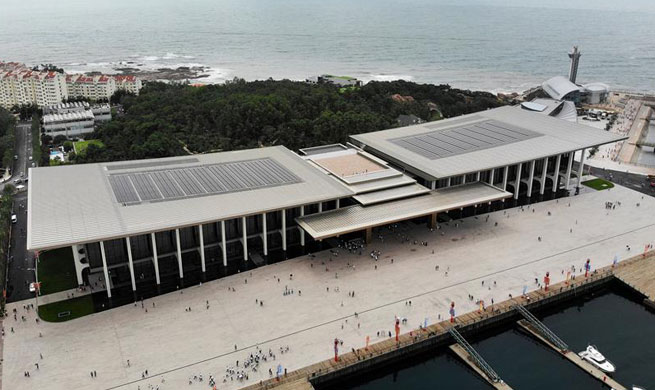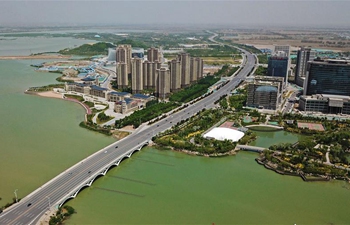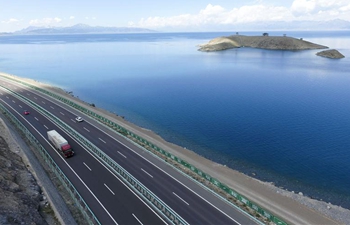ATHENS, July 2 (Xinhua) -- Greek Migration Minister Dimitris Vitsas pledged on Monday to step up efforts to decongest the northern Aegean Sea islands in coming months, as the European Commission announced the release of further financial aid to tackle the refugee crisis in Greece.
A total of 17,556 people are currently living in many cases in overcrowded reception facilities on the northern Aegean Sea islands, according to the latest e-mailed data for July 1 provided by the Interior Ministry.
Despite efforts made in the past three years, the capacity of hotspots on the islands remains about half. And although the 2016 EU-Turkey agreement helped reduce impressively the flows of refugees and migrants from Turkish shores, boats with dozens of people still land on Greek shores.
The number of refugees and migrants on the islands will be reduced to about 10,000 in September, Vitsas told Greek public broadcaster ERT.
The Greek official promised the acceleration of the procedure of assessing asylum bids, the transfer of vulnerable refugees to the mainland and the return of those who are not eligible for asylum to Turkey.
He ruled out the idea of the creation of new reception centers to accommodate the new arrivals, as local societies have voiced objections.
The remarks were made while the European Commission announced in an e-mailed press statement that it has awarded an additional 45.6 million euros (53 million U.S. dollars) in emergency assistance to support Spain and Greece respond to the migratory challenges they face.
In view of increased arrivals, Spain will receive 25.6 million euros to improve the reception capacity for arrivals at its southern coast and in Ceuta and Melilla as well as to help increase returns.
Another 20 million euros has been awarded to the United Nations High Commissioner for Refugees (UNHCR) to improve reception conditions in Greece, notably on the island of Lesvos.
Since early 2015, more than one million people landed on Greece risking their lives in the Aegean seeking refuge in Europe. Most continued their perilous journey to central and north Europe until the winter of 2016 when borders were sealed and the Balkan route closed.
More than 60,000 people remain stranded across Greece, according to official figures.
While the EU-Turkey deal has greatly contributed to lowering the number of arrivals in Greece, the country is still facing significant migratory pressure.
According to the National Coordination Center for Border Control, Immigration and Asylum, 8,522 persons entered Greece illegally through the Greek-Turkish sea borders in the first four months of 2018, compared to 5,307 in the corresponding period of 2017. (1 euro= 1.16 U.S. dollars)













